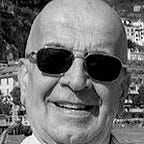On March 25th, 1300 …
Dante Alighieri embarked on a journey that would ultimately lead to the creation of his masterpiece, the Divine Comedy. This epic poem, written in the early 14th century, is widely considered one of the greatest works of literature in history.
Dante's journey began in the city of Florence, where he was born and raised. As a young man, he became involved in politics and was eventually exiled from his hometown. This experience, along with his deep religious faith, would shape the themes and imagery of his writing.
Over the course of many years, Dante worked tirelessly on the Divine Comedy, crafting a vivid and complex vision of the afterlife. The poem is divided into three parts - Inferno, Purgatorio, and Paradiso - each describing a different realm of the afterlife. Through his writing, Dante explores themes of sin, redemption, and the nature of God's love.
Today, on the anniversary of Dante’s journey, we can reflect on the enduring legacy of his work. The Divine Comedy continues to inspire readers and scholars alike, and its influence can be seen in countless works of literature, art, and music. Dante’s journey may have begun on March 25th, but his impact on the world of literature will be felt for centuries to come.
@@@@@@@@@@@@@@@@@@@@@@@@@@@@@@@@@@@@@@
Dante Alighieri, poet and writer (1265–1321), the imaginative poet, begins his otherworldly adventure on this day. He makes an extraordinary journey, descending into hellish horror, trudging on the cliffs of Purgatory, taking off from heaven to heaven, enraptured by the dizzying beauty of divine light. He is a frightened pilgrim who fears his fate as a sinner, but can count on two guides who support him in his “fatal journey”: the beloved Virgil, who also represents — we are in the Middle Ages and every writing is loaded with multiple meanings — the teachings of philosophy and the authority of the Empire, and the beloved Beatrice, who also represents the theological knowledge and the magisterium of the Church. The plot of the Comedy reflects Dante’s great design of an earthly world, a prefiguration of the otherworldly world, in which the universal power of the Emperor, ensuring peace, is the only one that can allow man to fully realize himself, waiting for be blessed in the court of the Heavenly Emperor. Anyone who opposes this providential design introduces evil into history and is responsible for the moral disorder that afflicts humanity. Against the background of this complex ideological construction, the journey of the protagonist unfolds as he meets unforgettable characters: dramatic figures of the damned; meek souls waiting, immersed in the eternal spring of Purgatory; blessed in Paradise, in which the only sensible element is light. Inexorably Dante the poet subjects the living and the dead to final judgment, distributing sentences of condemnation or acquittal at his discretion. We can thus find in the depths of Hell popes and greats of the earth branded with infamy, while characters considered sinners and even affected by ex-communication enjoy divine forgiveness. Politically defeated, exiled, and wandering through Italy, Dante will take revenge on his enemies and opponents of the Empire, even managing to assign, while alive, the reigning pope, Boniface VIII, to the bedlam of simoniacs. If Dante as a character is a small individual who represents all sinful humanity, fearful of damnation, Dante the poet invests himself with a saving mission and, rigorous and implacable judge, DARE TO BE GOD. A sublime example of delusion of omnipotence. (Almamatto)
